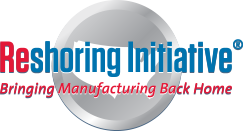Repurposing Supply Chains – Winning the War on the Pandemic and Beyond
The spread of COVID-19, caused by the novel coronavirus, is being felt across operations worldwide. The coronavirus pandemic reveals the downside of globalized supply chains. Offshore supply chains, located mostly in China, have created shortages of critical healthcare and pharmaceutical supplies. To deal with these shortages, companies are repurposing domestic factories and shifting supply chains to win the war on the pandemic.
In World War II automakers converted factories to produce military equipment such as tanks and planes to defeat the Axis powers and preserve freedom. Now, in 2020, General Motors, Ford and others have, in the span of a few weeks, transformed their manufacturing facilities to ramp up production of critical medical supplies such as ventilators, face shields, masks and respirators. In collaboration with healthcare companies, they are tackling the imperative to produce essential lifesaving supplies. In addition to repurposing facilities, companies are working through alternative sourcing strategies. Identifying different supply chain scenarios and evaluating operational impacts is critical given the expanding nature of supply chain risks. To prevent future supply chain disruptions, firms are undertaking strategic cost-benefit and risk analysis to compare sourcing strategies from different geographic locations. Informed Business Decisions As companies deal with global supply chain disruptions, they need to analyze the real cost of offshoring. Manufacturers are reevaluating their production and sourcing locations by taking a closer look at the benefits of reshoring. Most companies make sourcing decisions based solely on price, oftentimes resulting in a 20% to 30% miscalculation of actual offshoring costs. The Total Cost of Ownership (TCO) Estimator is a free online tool that helps companies account for all relevant factors — overhead, balance sheet, risks, corporate strategy and other external and internal business considerations — to determine the true total cost of ownership. By using the Reshoring Initiative’s TCO analysis, manufacturers can factor in sustainability objectives and minimize environmental impacts. TCO enables companies to identify products for which reshoring will provide major environmental benefits while maximizing shareholder returns. Shifting to a local-for-local business model will reduce CO2 levels and achieve higher environmental standards sooner. The Reshoring Initiative has also developed the CSRE (Corporate Social Responsibility Estimator), a tool to help companies quantify the environmental impact of offshore vs. domestic sourcing. In a first test, CSRE showed that shifting production of an aluminum diecasting from China to the U.S. cut the environmental impact by close to 50%. Contact info@reshorenow.org to learn more. Harry Moser, founder of the Reshoring Initiative, is collaborating with the Association for Manufacturing Excellence (AME) to promote reshoring as part of its “Manufacturing Renaissance” initiative. “We are committed to changing the sourcing paradigm from ‘offshored is cheaper’ to ‘local reduces the total cost of ownership,’” said Moser. Global Supply Chain Strategies Companies are undergoing a revolution in terms of implementing new operational strategies and technologies in response to the demands of the twenty-first century. Effective supply chain management (SCM) is an essential strategy for success in the global and e-markets. Companies are looking at developing agile supply chains to get their product to market faster at a minimum total cost, including considering harm to the environment and risks and costs of global supply chain disruptions. “The likelihood of a costly production interruption increases greatly with distance,” said Kim Humphrey, AME’s president and CEO. “As a strategy, more companies are shortening their supply chain, which reduces cost and risk. By working together, AME and its alliance partners are reducing operational wastes and supply chain disruptions to improve their ability to compete on the world stage.” To learn how global business leaders and practitioners are coming together to deal with the latest supply chain disruptions and global manufacturing challenges in the 4.0 industrial and digital revolution, register now for the 36th annual AME International Conference. AME Toronto 2020, the world’s largest lean conference, takes place October 26-30, 2020 in Toronto, Ontario, Canada. Discover fresh insights into strategies for coping with global supply chain disruptions and the next generation of advanced manufacturing challenges. Glenn Marshall, Newport News Shipbuilding Career Pathways (retired), is on the Association for Manufacturing Excellence (AME) Management Team initiative for leading a “Manufacturing Renaissance” and a member of the https://www.jobcreatorsnetwork.com. For more information: marsh8279@aol.com. ---

